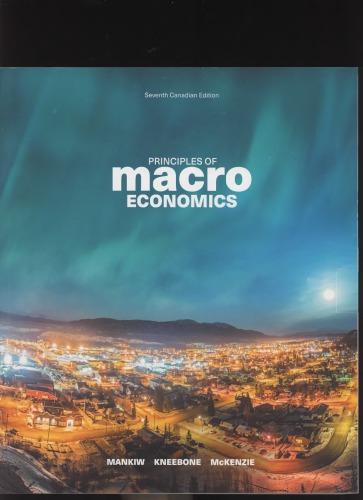9. Conrad and Barbara produce food and clothing. In an hour, Conrad can produce 1 unit of
Question:
9. Conrad and Barbara produce food and clothing. In an hour, Conrad can produce 1 unit of food or 1 unit of clothing, while Barbara can produce 2 units of food or 3 units of clothing. They each work 10 hours a day.
a. Who has an absolute advantage in producing food? Who has an absolute advantage in producing clothing? Explain.
b. Who has a comparative advantage in producing food? Who has a comparative advantage in producing clothing? Explain.
c. Draw the production possibilities frontier for the household (that is, Conrad and Barbara together) assuming that each spends the same number of hours each day as the other producing food and clothing.
d. Barbara suggests that, instead, she specialize in making clothing. That is, she will do all of the clothing production, unless her time is fully devoted to clothing, and then Conrad will chip in. What does the household production possibilities frontier look like now?
e. Conrad suggests that Barbara specialize in producing food. That is, Barbara will do all the food production, unless her time is fully devoted to food, and then Conrad will chip in. What does the household production possibilities frontier look like under Conrad's proposal?
f. Comparing your answers to parts (c), (d), and (e), which allocation of time makes the most sense? Relate your answer to the theory of comparative advantage.
Step by Step Answer:

Principles Of Macroeconomics
ISBN: 9780176591977
7th Canadian Edition
Authors: N. Mankiw, Ronald Kneebone, Kenneth McKenzie





